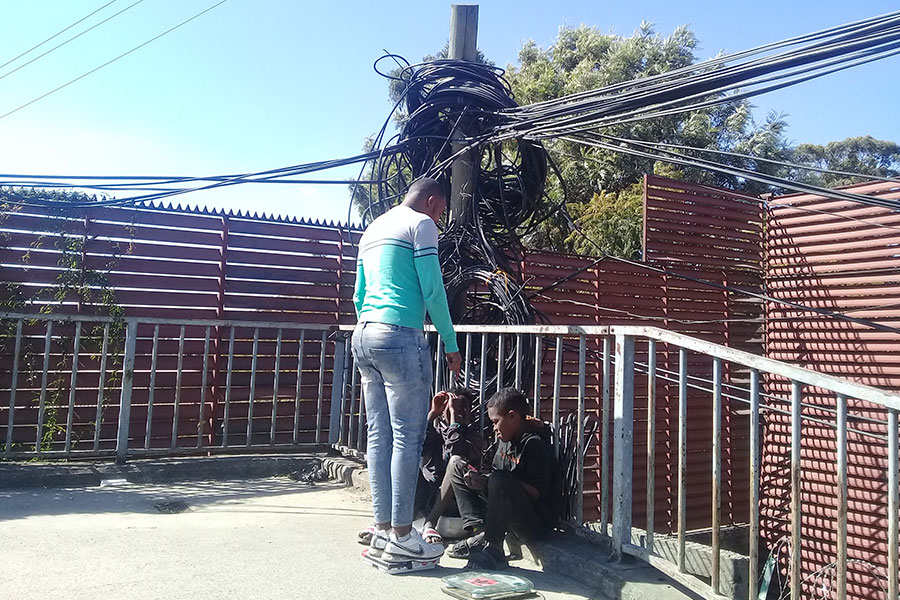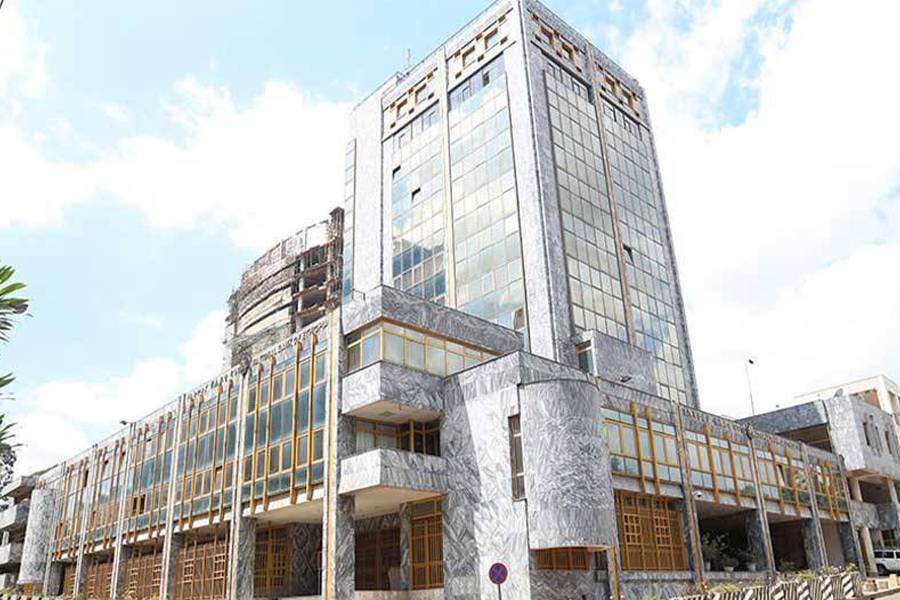
Editorial | Jun 07,2020
Standard & Poor's (S&P), an American credit rating agency, has downgraded Ethiopia's credit standing to "junk", caused by political turbulence, civil war and a fall in assistance from development partners. The agency cautioned creditors last week, Ethiopia may default on its commercial debt obligations.
S&P is the second rating agency to lower Ethiopia's rating in recent months. Five months ago, Moody's Investors Service downgraded Ethiopia's long-term issuer and senior unsecured ratings to Caa1 from B2, showing its higher susceptibility to defaulting on its debts. S&P indicated these pressures could result in Ethiopia`s failure to service the interest payments on its commercial obligations, including the Eurobond payment due for December 11, 2021.
Ethiopia paid 1.8 billion dollars in total external debt servicing up to June 30, 2021, including interest, of which the federal government paid 302.11 million dollars. The balance was settled by state-owned enterprises such as Ethiopian Airlines, Ethio telecom and Ethiopian Electric Power.
S&P's statement comes days after the Ministry of Finance announced the establishment of a creditor committee that would restructure Ethiopia's 30 billion dollars outstanding debt under the G-20 common framework. The committee is jointly chaired by China and France, where an agreement was reached to expedite the country's debt re-profiling, in a meeting held on September 16.
The credit agency attributed a belated reaction to the downgrading of Ethiopia’s sovereign credit rating from B- to CCC+, indicating its vulnerability to nonpayments. S&P says Ethiopia is dependent on favourable economic conditions to meet its financial commitments and has a higher chance of facing credit or payment crises. The ongoing internal conflict, low reserves and declining flow of external financing are cited by the credit agency for lowering the rating, diminishing the country's standing to service its debt.
The lack of clarity on whether the restructuring includes the private sector has also contributed to the downgrade, pushing Ethiopia to the ranks of African countries such as Congo, Angola, and Mozambique.
“We would consider private sector participation under the Common Framework as a default event under our sovereign criteria,” reads the statement S&P issued late last week.
Ethiopian authorities are anticipating addressing these issues in meetings with the IMF. The latter will present Ethiopia's debt sustainability analysis to determine how much of the country's debt should be included in the restructuring scheme, says Eyob Tekalign(PhD), a state minister for Finance.
The IMF, which has suspended Ethiopia's programme under its Extended Credit Facility (ECF), will review Ethiopia's request to set up a new poverty reduction and growth trust resources programme to replace the expired ECF of 1.5 billion dollars. Seeking support from the IMF indicates the country is under debt distress, which may have caused the downgrading, according to Tewodros Mekonnen (PhD), a country economist at the International Growth Centre (IGC).
"It remains unclear when this process, initially scheduled to be completed by April, will be finalised, and whether Ethiopia will involve the private sector as part of the debt restructuring process," reads a report from S&P, acknowledging the establishment of the creditors' committee and IMF's support in assessing Ethiopia's public debt sustainability. Finance Ministry officials clarified in February this year that the inclusion of private creditors in any restructuring deal was "very unlikely". Any potential adjustment will be "minor", according to a senior economist for Sub-Saharan Africa at IHS Markit, another credit rating agency that has downgraded Ethiopia's rating.
However, State Minister Eyob indicated last week the public creditors would identify parameters for comparable treatment, a consideration in a debt-restructuring agreement with the Paris Club creditors that the debtor will secure at least comparable relief from other creditors.
Ethiopia had a B/B credit rating until 2020, which indicated it was less vulnerable to defaulting on its debt. In February this year, after the government requested debt restructuring under the G-20 common framework, S&P downgraded Ethiopia's rating to BB, indicating its eroding capacity to fulfil its obligations.
Officials of the Ministry of Finance have put on a brave face following the announcement of the downgrading, claiming that the government has desisted taking government-guaranteed commercial loans over the past two years. Confident this would remain the case, they dismissed the credit downgrading as "not worrying". They rather see it as a short-term liquidity issue.
"We only need to restructure a few billion," said Eyob.
Experts echo the same predilection. As Ethiopia is mainly taking out concessional loans from development partners, the sovereign credit rating will not have significant economic implications, says Tewodros. The downgraded credit standing would mainly affect the resale of Ethiopia’s Eurobond in the secondary market.
"Those looking to resale the bond may receive a discounted offer," Tewodros told Fortune.
Ethiopia's Eurobond yield, sold in 2014 at a value of one billion dollars with a due date of a decade, was valued at 11.7pc as of September 22, 2021.
PUBLISHED ON
Sep 26,2021 [ VOL
22 , NO
1117]

Editorial | Jun 07,2020

Fortune News | Feb 19,2022

Radar | Dec 19,2021

Fortune News | Sep 26,2021

My Opinion | Jul 18,2021

Dec 22 , 2024 . By TIZITA SHEWAFERAW
Charged with transforming colossal state-owned enterprises into modern and competitiv...

Aug 18 , 2024 . By AKSAH ITALO
Although predictable Yonas Zerihun's job in the ride-hailing service is not immune to...

Jul 28 , 2024 . By TIZITA SHEWAFERAW
Unhabitual, perhaps too many, Samuel Gebreyohannes, 38, used to occasionally enjoy a couple of beers at breakfast. However, he recently swit...

Jul 13 , 2024 . By AKSAH ITALO
Investors who rely on tractors, trucks, and field vehicles for commuting, transporting commodities, and f...

Oct 25 , 2025
The regulatory machinery is on overdrive. In only two years, no fewer than 35 new pro...

Oct 18 , 2025
The political establishment, notably the ruling party and its top brass, has become p...

Oct 11 , 2025
Ladislas Farago, a roving Associated Press (AP) correspondent, arrived in Ethiopia in...

Oct 4 , 2025
Eyob Tekalegn (PhD) had been in the Governor's chair for only weeks when, on Septembe...